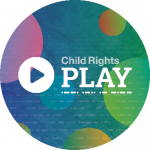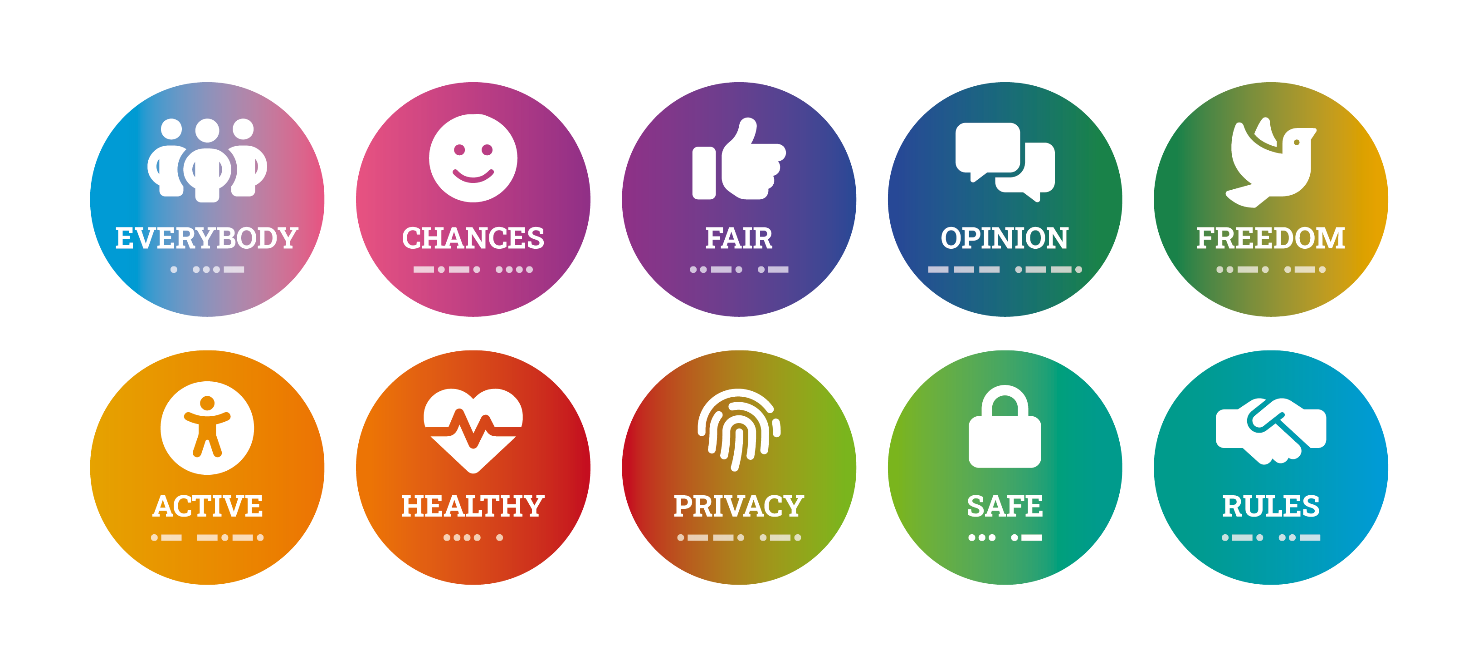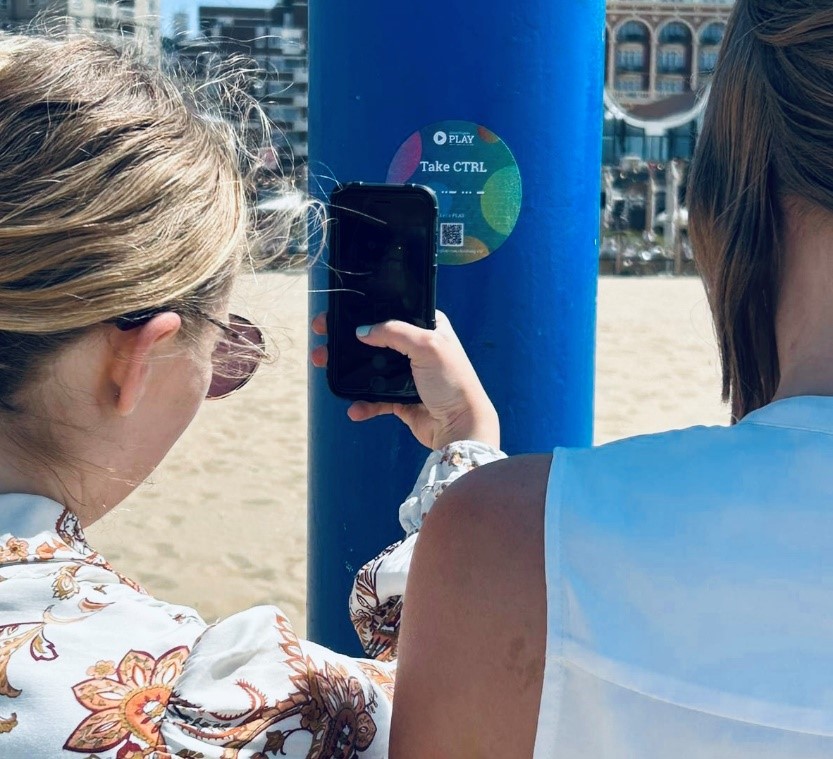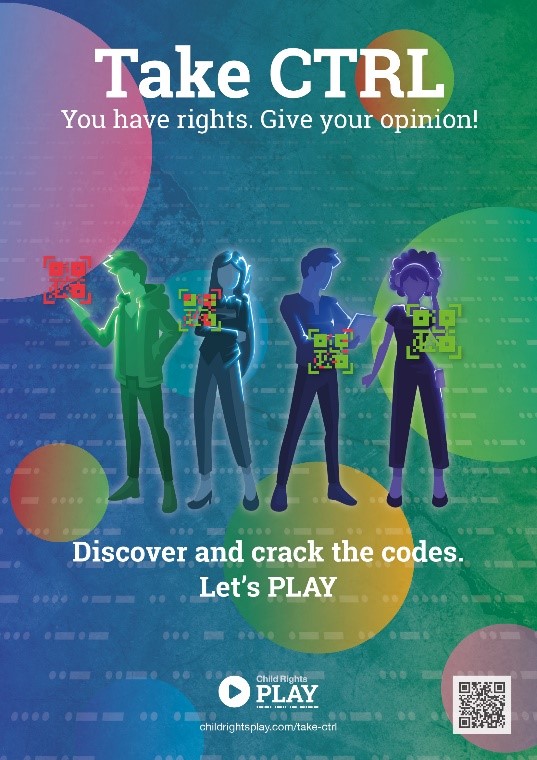Let’s PLAY. You have digital rights!
23/06/23
Peter Joziasse, the founder of the Digital Child Rights Foundation, believes in the importance of children’s rights in the digital environment and the need for youth participation in the digital world. As enthusiasts, followers, and members of the EU Code Week community, it’s crucial for us to understand children’s rights in the digital realm and actively listen to their perspectives.

The UN General Comment 25 on children’s rights in relation to the digital environment, based on the UN Convention on the Rights of the Child, provides valuable insights. To access the complete text of General Comment 25, you can download the online Digital Child Rights Expo, which has been designed to explain children’s digital rights in an easily understandable and visually appealing manner, catering specifically to children and young people.
To promote digital literacy in schools and foster participation in city programmes, the Digital Child Rights Foundation has developed the Child Rights PLAY toolbox. Through this toolbox, this foundation encourages young people aged 10 to 18 to realise their rights and responsibilities in the digital world.
The aim is not only to educate them, but also to stimulate critical thinking about their digital behaviours. Moreover, these tools provide children with an opportunity to express their opinions about their digital lives to adults involved in their communities.

The Child Rights PLAY toolbox comprises various tools categorised into three levels: awareness, education, and participation.
Tools on the awareness level
- Play: This interactive Digital Child Rights game prompts young people to contemplate their digital rights and obligations. Through discussions on different themes, they determine their most significant rights and share their opinions online.
- Talk: In the Digital Children’s Rights conversation tool, young people engage in discussions about crucial aspects of their digital lives and environments. They create personalised posters with a selfie and a quote, which collectively form a Digital Children’s Rights Expo.
- Show: Collaborating on a Digital Child Rights show, children and young people perform and engage in conversations. They conclude the activity by providing feedback and sharing ideas about their digital lives with adults online.
Tools on the education level
- Lesson: This tool involves discussing ten digital themes using conversation cards. Through deliberations on supporting or opposing viewpoints, participants identify necessary changes and communicate their messages to adults. They also express their opinions online.
- Research: In this project, young people conduct research on the state of their digital rights at school and at home. They complete the Digital Children’s Rights Check online, generating a report for discussion with teachers, parents, caregivers, and local authorities.
- Festival: This activity spans a whole day or week and focuses on a specific digital theme, such as mental health. Young people work on their own ideas or prototypes to enhance their digital lives.

Tools on the participation level
- Panel: Through the childrightsplay.com platform, young people can express their opinions, ideas, wishes, and feedback about their digital lives and environments. Each school, municipality, or public organization has a dedicated participation environment.
- Game app: This tool encourages young people to venture outside. By walking a designated route and playing the “Take CTRL” game on an app, they have the opportunity to provide feedback on how their digital city can become more child-friendly. They engage in discussions with their school and municipality.
- Project: This tool enables young people to work on their own projects, such as assisting the elderly with their iPads, collecting old mobile phones, organizing campaigns against digital bullying, or arranging discussions with municipalities about their digital lives.

Peter emphasises that parents, caregivers, teachers, and professionals often overlook the negative online experiences children face. We fail to listen attentively and systematically to children and young people’s opinions and feedback regarding improving the digital environment. This neglects a vital aspect of the UN General Comment 25, which emphasises “respecting the views of the child.”
Recognising this gap, the Digital Child Rights Foundation ensures that all children and young people participating in their programmes automatically become part of the Digital Child Rights Panel. Through their PLAY participation platform, they collect anonymous opinions and insights. Access to Digital Children’s Rights reports is provided, serving as valuable tools for discussions with children, young people, parents, caregivers, schools, and municipalities.
The Digital Child Rights Foundation takes immense pride in its involvement with the EU Code Week. If you are eager to learn more about the Foundation’s initiatives, please visit digitalchildrights.org. We encourage you to embrace the spirit of PLAY and CODE. Together, let’s create a digital world where children’s rights are respected, and their voices are heard.


